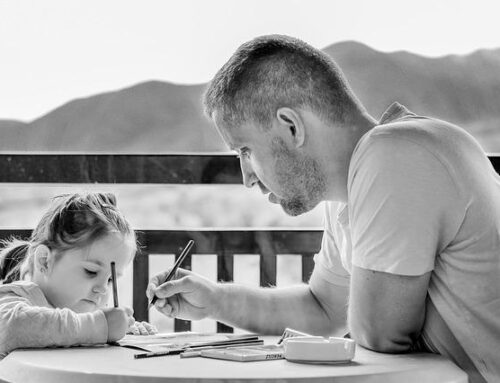“Love me when I least deserve it, because that’s when I really need it.”
– Swedish Proverb
I absolutely love that quote. Out of all the wise quotes I have seen, this is right up there with the fortune cookie fortune that I have on my refrigerator which reads, “There is no greater kindness than wisdom.” Man, they hit gold with that one. Along with the Swedish chef and Swedish Fish, this quote is something that I often think of.
Understanding Why People Are Unkind
One of the main reasons why I love this Swedish proverb is because we all can relate. We have all acted in ways that might not have resembled the deserving of being loved. We have all hurt people in our lives. I can hear you shaking your head in disagreement but be honest with yourself. None of us are immune to hurting others and being hurt by others. The reason for this is because we all live in relationship to one another. Being in relationship means that we are all bound to be triggered at some point in time, resulting in a behavior that isn’t so kind.
When it comes to intimate relationships, we are especially prone to needing this proverb in our lives. The way I want to exemplify this is by holding a mirror up to you, the reader. When you are acting in a way that is exclusionary, short, impatient, cruel, bullying, or in any other way hurtful, I want you to think about how you were feeling in those moments. Were you in pain? Were you sad? What hurt were you dealing with?
These are easy questions to ask because I have not met many people in this world who would answer no to them. From all the people that I know personally and professionally, myself included, when we have acted in a way that was not very kind, we weren’t acting from a place of feeling loved, cared for, safe, and/or secure. If we were feeling any of these emotions, there is a higher likelihood that we would begin to share those feelings with others. Those feelings of connection lead to wanting to lift others up and help them feel good, not tear them down and make them feel badly.
Understanding Your Partner’s Emotions
So, when it comes to our partner acting in a way that is unkind, this is an indication that they aren’t in a good place. Instead of reaching out to see if they are okay, it would make sense to want to fire back a hurtful remark and take their behavior personally. Their behavior hurt you, and in reaction to the pain, you want to hurt them back. This kneejerk reaction is not useful in establishing a sense of safety in the relationship.
As the title of this blog suggests, it is during these times that it might be more helpful to reach out to your partner. Their behavior is a clear message that they are struggling with something emotionally. The challenge in this scenario for you is ego. When ego is involved, the desire to hurt your partner back is increased, making it hard to remain connected to them. Once you put your ego aside for that moment, it becomes evident that their behavior is not personal to you. When you do this, it will make it possible for you to be curious to their pain instead of taking it on as your own.
When the ego is successfully extinguished, then the true nature of the Swedish proverb is realized. The impetus of this unkind behavior is due to a lack of something. This lack is an unmet need. When an unmet need is experienced, your partner reacts in a way that is usually undesirable. For instance, when someone feels insecure, they may act needy. When someone is feeling unsafe, they may act aggressively. When someone is feeling unloved, they react harshly. The equation is simple; unmet need plus undesirable behavior minus your own ego, equals the response with kindness and compassion. Showing love to your partner when they are not acting desirably lessens conflict and your own hurt feelings.
Understanding the Difference Between Unkind and Abusive Behavior
At this time, I want to make a very important distinction. By no means am I suggesting that you enable abusive behavior. An abusive relationship is of a different nature and flows much deeper than the discussion in this blog. If you are unsure if your relationship is abusive or not, speak to a therapist and refer to the Duluth Power and Control Wheel. (I will be writing about the Duluth Power and Control Wheel in a future blog.)
6 Steps You Can Take to Improve Your Relationship with Your Partner
Here is how to make this Proverb work for you in your current relationship:
- Be in tune with your partner. Be aware of the dance both of you play in your regular routines. This will help you detect that they are not in a good place sooner rather than later. This will also allow you to not take their behavior personally.
- If you find yourself taking your partner’s behavior personally, get out of your own head. Do this by asking questions. Search to see if your perceptions are accurate and if your partner’s behavior has anything to do with something you have said or done.
- Approach conversations with inclusion words such as “us” or “we.” Also use “I” statements. Avoid the word “you” whenever possible. Asking, “Is everything okay?” is a softer approach versus, “What’s bothering you?”
- Participate in creating a safe space for your partner. Becoming the best partner you can be will allow your partner to feel safe and reciprocate.
- Above all, communicate. Talk about your feelings and take ownership of the feelings that you are having. Truly listen to what your partner is saying in response.
- Attend a couples workshop at CTSA or speak to one of our therapists. Call (443) 567-7037 to set up an appointment or reserve a seat in an upcoming workshop.





Leave A Comment